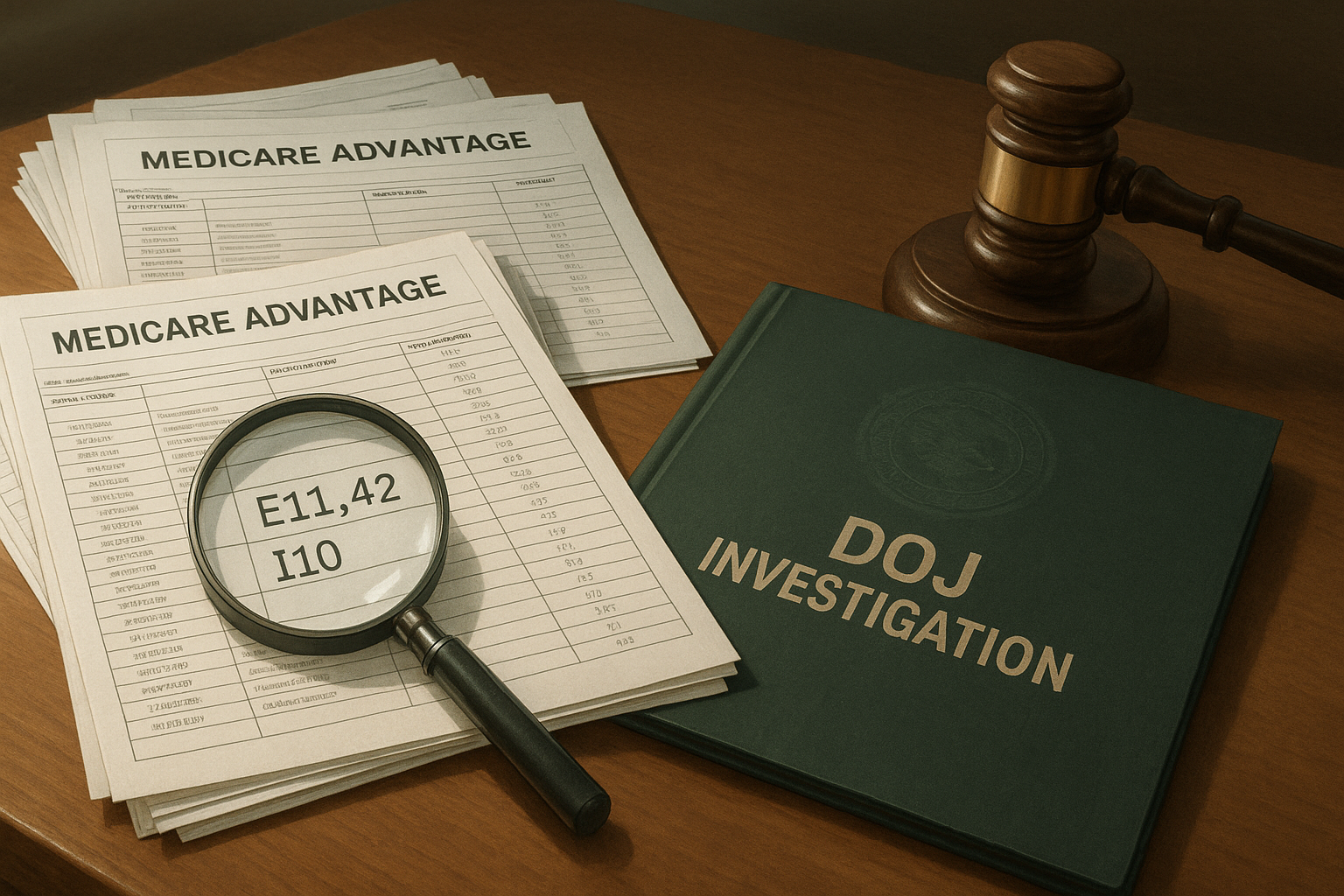Shares of UnitedHealth Group tumbled 4.7% yesterday after the healthcare behemoth confirmed what no executive wants to announce: they're under Department of Justice investigation. This particular probe—targeting the company's Medicare billing practices—sent investors scurrying for the exits faster than passengers on a smoke-filled plane.
The timing couldn't be worse for UnitedHealth. The company has been riding high as America's largest private health insurer while simultaneously becoming more entangled in government healthcare programs. It's a bit like claiming you're independent while cashing checks from your parents.
Playing the Risk-Coding Game
At the heart of this mess is Medicare Advantage—essentially the private-sector version of Medicare that now covers nearly half of all beneficiaries. I've been covering these programs since 2016, and the business model remains stubbornly straightforward: the government pays insurers a fixed amount based on how sick their patients supposedly are. Sicker patients? Bigger checks.
This creates what my economics professor used to call a "perverse incentive structure." Insurance companies benefit enormously from finding—or some might say, aggressively documenting—every possible condition their members might have. It's not unlike how teenagers suddenly develop detailed cleaning skills when asking for car keys.
The whole arrangement feels... let's just say problematic. When payment is tied to diagnosis codes, suddenly everyone develops an intense fascination with diagnosis codes. Funny how that works.
Upcoding: The Art of Paper Illness
What the DOJ appears to be investigating is "upcoding"—the practice of making patients look sicker on paper than they are in reality. This isn't necessarily fabricating conditions (though that would certainly qualify). More often, it involves aggressive interpretation of medical records, retrospective reviews, and systems designed to ensure no potentially billable condition escapes documentation.
Look, this isn't UnitedHealth's first regulatory rodeo. Back in 2017, the Justice Department joined a whistleblower lawsuit alleging the company knowingly kept overpayments from Medicare. Last year, they coughed up $73 million to settle allegations about inaccurate diagnosis codes.
The question isn't whether insurers have incentives to maximize documentation—of course they do! The real issue is where thorough medical documentation ends and creative accounting begins.
And that line? It's drawn in regulatory quicksand.
When Silicon Valley Meets Medicare
What makes this particularly fascinating (at least to healthcare policy nerds like me) is how technology has transformed the game. UnitedHealth's Optum division has plowed billions into data analytics that can crawl through patient records like digital bloodhounds sniffing out billable conditions.
It's algorithmic regulatory arbitrage at its finest—finding every possible revenue opportunity within the technical boundaries of increasingly complex rules.
The fundamental problem? Regulators designed Medicare Advantage payment rules for an analog world. But we're living in a digital one. When you create a system that rewards finding health problems, then give companies AI tools to find those problems... well, should anyone be surprised when they find a lot of them?
I spoke with a former Medicare Advantage executive last month who put it bluntly: "The government created a game where documentation equals dollars, then acts shocked when companies get really good at documentation."
What This Means for Investors
The 4.7% stock plunge tells you everything about how Wall Street views this investigation. UnitedHealth makes bank from Medicare Advantage—we're talking about a program that gobbled up roughly $374 billion in federal spending last year, with UnitedHealth claiming a hefty slice of that enormous pie.
If the DOJ investigation leads to substantial penalties or—even worse—changes to how Medicare Advantage payments are calculated, the impact could hurt. But there's also a cynical "cost of doing business" interpretation that many industry insiders privately acknowledge. After all, in today's healthcare industry, regulatory settlements are increasingly viewed as just another line item expense.
(Having covered healthcare finance for over a decade, I've watched companies factor potential settlements into their financial projections with disturbing precision.)
The broader question for investors: Is this an isolated issue or the beginning of increased scrutiny of the entire Medicare Advantage model? With federal deficits ballooning and Medicare's trust fund circling the drain, the government has every motivation to ensure it's not overpaying private insurers.
The Never-Ending Regulatory Dance
There's a pattern here that's played out countless times before. Government creates program with specific incentives. Companies optimize against those incentives—aggressively. Government realizes the optimization is costing taxpayers billions. Investigations begin. Settlements follow. Rules tighten.
And then... companies find new optimization strategies.
It's a regulatory waltz that's become as predictable as seasonal allergies. The only question is how costly this particular dance will be for UnitedHealth and whether it changes the music for the entire industry.
For investors trying to make sense of all this, the calculation ultimately comes down to whether this represents a fundamental shift in the regulatory environment or just another speed bump. Given UnitedHealth's massive scale and diversification, even a substantial settlement might not fundamentally alter its trajectory.
But it certainly makes for some uncomfortable earnings calls.
In the meantime, UnitedHealth executives are probably spending way more time with their lawyers than they'd like. Which, ironically enough, is probably one healthcare service they won't be coding for reimbursement.
